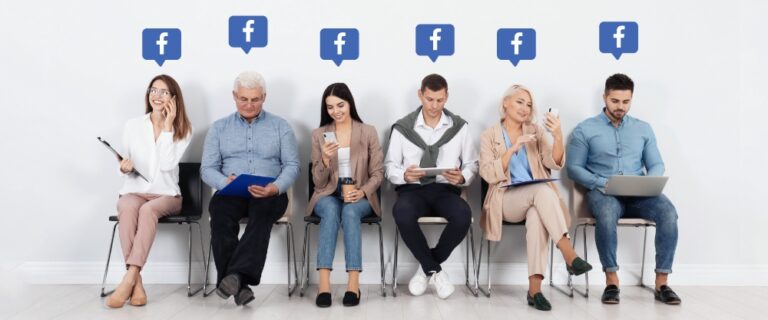4 Proven Benefits of the Use of Social Media in Healthcare
Posted: December 8, 2021 - By Tiffany Beveridge
Today social media is used by people everywhere, including your patients. Making a presence for your medical practice on social media gives you the opportunity to meet patients on their own terms in an environment where they feel comfortable. As many as 90% of older adults have said that they use social media to research and discuss their health concerns before deciding to make an appointment.
Healthcare Providers Should Go Where The Patients Are
Understandably, some health care professionals might be concerned about seeming unprofessional using platforms like Facebook or Instagram. While it’s true that doctors should always communicate with their patients in a tone that’s authoritative and professional, it’s nevertheless important for patients to feel comfortable sharing information with you.
Many important health-related conversations aren’t likely to take place online, but social media is the window through which many will first approach you. First impressions matter. Remember — potential patients online are looking for healthcare professionals who they can trust to solve their problems. Your presence on social networking sites gives you the opportunity to let them see you in a “natural” environment, interacting and engaging with the members of your online communities.
1. A Place for Patient Interaction
Proper HIPAA compliance, of course, prevents you from using social media to discuss someone’s medical records or private healthcare information. Instead, you can use it in accord with federal laws to create informative and educational content in a professional manner that targets your patients in a broad sense.
Patients follow your social media page to get information about the healthcare specialty that you treat. This presents an excellent opportunity for you to make organic content for them to engage with, both as a way of helping them and encouraging them to make an appointment with you.
Social media platforms also give you a place to share your values as a healthcare professional. Your patients will feel more comfortable with someone whose interests align with their own. You can also use those posts as opportunities to present insightful case studies about past situations that might be similar to what your followers are going through.
More Patients Are Using Social Media for Health-Related Reasons
Just how many patients use social media platforms before deciding on a healthcare provider? As many 74% of patients use social media as a source for public health information. To be clear, they don’t exactly rely on it for health care, but they do use social media channels to garner feedback from others who have similar health concerns as they do. They may sometimes try to directly ask health care professionals about their questions.
As a result, your practice’s social media page may be the first step in someone’s patient journey. Remember that many patients experience a certain amount of anxiety about visiting a doctor, especially if they haven’t been seen in a while. Your social media page is the same as an open front door to your medical office. It should be warm, inviting, and full of empowering messages that encourage visitors to take their health seriously, schedule the appointments they need and have their conditions seen by a verified health care professional.
2. A Safe Harbor for Patient Education and Health Tips
Social media makes information widely available, and this can be a double-edged sword. True, it makes it easier for patients to find you. But it also makes it easier for them to think they’re getting the right information about their condition through other, unverified social media channels when they really aren’t. Sadly, there’s a lot of misinformation out there. Can they always tell the difference between true medical information and what’s false? Or information that might be good for some, but not for them?
This dynamic is neither good for them nor for you. And during large-scale health crises, it can have a detrimental effect on the public health at large. You can even out this tendency with calm, authoritative messages that redirect anxious social media users away from poorly informed channels and toward your own page. There, they can receive solid patient education that’s relevant to them. People are out there on social media looking for thought leadership and expert opinions — you can be that voice for your own health care specialty.
3. Peer-to-Peer Support Networks for HealthCare Professionals
Your patients aren’t the only reason to engage with social media. Once you’re situated, you’ll find that there are other health professionals creating an online space with you Indeed, many might be from your own geographic area. Other physicians are excellent resources for finding out the latest trends in your sector. You can even bounce ideas off of each other and build your online reputation together.
One important thing to keep in mind is patient confidentiality. Growing your medical network is an excellent means of expanding your range of information beyond the physical boundaries of your practice, but it will always remain your own practice. The details of your interactions with your patients must always comply with confidentiality laws. You can share knowledge with other doctors, recommend medical journals, and solicit general advice. But your network must maintain its boundaries.
An Invaluable Network for Healthcare Providers
Professional networks are important tools, and your participation in them will go a long way toward building your authority with your patients. Use your network to:
- Ask for, make, or receive referrals whenever they’re appropriate.
- Inform yourself and take part in healthcare advocacy topics relevant to your specialty.
- Discuss the challenges of, and solicit advice for, managing a healthcare practice.
- Analyze and share research data that can help your practice.
Maintaining a successful healthcare network is like building a healthy relationship — there’s a constant give and take. Just as you receive information and benefit from the knowledge of your fellow health care professionals, also try to bring your own value to the table. Return the favor by sharing, commenting, and otherwise engaging with the pages of the practices of others in your network. This not only keeps you accountable, but it can also turn you into a thought leader in your area over time. This dramatically increases the likelihood of receiving referrals.
4. Cost-Effective Marketing Across Social Media Platforms
It’s no secret that social media is a modern necessity where marketing is concerned. Healthcare providers also need to get themselves on social media, both for the good of their practice and that of public health. There are over 4 billion social media users across the entire world. That means practices that don’t take advantage of social media for their marketing are putting themselves at a great and unnecessary disadvantage.
The Use of Social Media in Healthcare
Social media platforms use both organic and paid advertising to convey messages from healthcare organizations to potential patients. The difference between the two is important:
- Paid Advertising: This works similar to a traditional advertising campaign in which you pay to have your message broadcast to a specific demographic — a target audience — whose health concerns and interests match the parameters you set in advance.
- Organic Marketing: These are posts geared toward providing general medical information related to your specialty — say, healthy dieting tips — and are meant to keep your followers engaged, encouraging them to make appointments as needed. Organic content can even also help you rank higher on the search engine results pages (SERPs) and attract new patients.
Your health practice is not a “business” — you can’t advertise medical treatments like vacuum cleaners. But it’s important to know that many of the marketing principles used in other industries also apply to healthcare. That means, for instance, you need to be mindful of your brand while using social media. The color scheme, logo, font, and voice that you use on your website — or at your practice — should likewise be reflected on your social media pages.
Analytical Tools for Healthcare Providers
Metrics are one of the great cost-saving marketing tools of social media platforms like Facebook. You can use built-in analytical tools to keep track of engagement and interaction with the content you put out. Do they just read through quickly, or do they actually click through to your website?
The data that social networking platforms provide is crucial for deciding the direction of your organization. Social media tools built for advertising can let you identify what’s working and what isn’t in your marketing. You can also boost organic posts into paid ads when they do especially well, or identify certain topics or themes that resonate enough for your audience to merit converting them into paid advertising.
Healthcare Professionals Should Get On Social Media
Although it can seem like a lot of work, medical professionals should make every effort to utilize social media. Online communication is the way of the future, and more and more patients are starting to prefer using their mobile devices to handle medical events. Moreover, countless social media groups exist that are geared toward the healthcare field that you specialize in.
WebMD PracticePro comes with a variety of online tools to help social media users discover your practice. Health professionals can customize PracticePro to take advantage of multiple social networks at a time, streamlining and automating your ability to find new followers and schedule more appointments. Contact us today to request a free demo.

